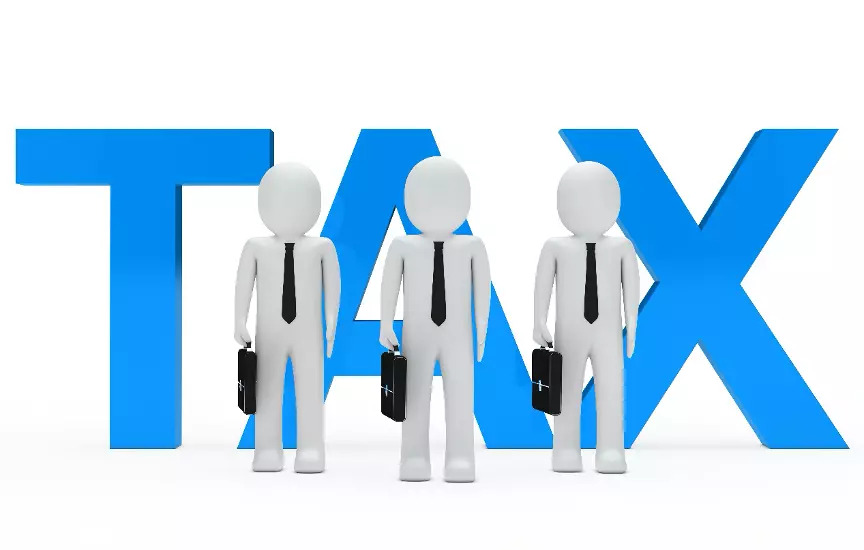Are you a landlord?
Well, if you are, I’m sure you have a lot on your mind any day and every day. And we are sure taxes is the elephant in the room for many. To help ease your mind, this is for you, to help in filing your annual returns. Hint; it’s not that complicated.

It is that time of the year again where every taxpayer is mandated by law to declare their income and file their annual returns. All individuals should declare and file their returns for the year 2021 by 30th June, 2022. Landlords may file under the monthly Residential Rental Income regime or the annual Income Tax regime.
Monthly Rental Returns
Monthly residential rental income regime applies to resident persons earning rental income from residential premises that is between Ksh288,001 to a maximum of Ksh 15,000,000 in any year of income.

Persons under this regime are required to file returns and make payments for the income earned by 20th of the following month. For instance, rent received in March should be declared and tax is paid on or before April 20th. They must file returns every month even if they receive rent from tenants either monthly, quarterly, semi-annually or annually.
A person is required to file a nil monthly residential rental income return if they did not receive any rent for the month.
Annual Income tax returns
I am sure you are wondering what if I have filed my monthly residential rental income returns, why then should I declare my annual returns and how should I file my annual Income Tax - Resident return?
- A person receiving rental income below Kshs. 288,000 or above Kshs. 15 million per year shall be required to file annual income tax returns in which they will also declare this rental income together with income from other sources.
- Secondly, a person who receives residential rental income falling with the threshold for residential rental income who opts not to be subject to the residential rental income regime will be required to file the Income Tax – Resident return and declare rental income received together with income from any other source. Persons who qualify to be in the residential rental income regime but opt not to be subject to it will be required to notify the Commissioner at least 3 months before the end of the year of income.
Landlord Categories
Well, when it comes to landlords, you will fall into any of the following categories-
- Your only source of income is income from the rental property and falls within the threshold for residential rental income regime and have not opted out of the residential rental income regime.
- You earn residential rental income that is within the residential rental income threshold and have other sources of income and have not opted out of the residential rental income regime.
- You earn residential rental income only that is within the residential rental income regime and have opted out.
- You earn residential rental income only that does not fall within the threshold.
Let us break it down for you to be able to know where you fit in.
For landlords falling within the residential rental income regime and have not opted out of the regime:
They required to file your monthly rental income tax return on or before the 20th of the following month.
Tax on residential rental income is charged at the rate of 10% of the gross rent received. This means tax will be 10% of the amount received. In this case no allowance is given for deduction of any expenses.
MRI tax is final and you are not required to declare the same in your annual return. However, it is important to note that if you did not receive any rent in a particular month, you should file NIL monthly rental income for that month.
Landlords:
- Who have opted out; and
- Whose residential rental income is outside the residential rental income threshold
Will be required to declare the rental income in their annual Income Tax – Resident return.
In these two cases, tax will be charged on the net rental income. This means that the taxpayer will deduct any expenses directly related to the rental income and will be taxed on what remains after deduction of expenses. It is however important to note that capital expenditure (e.g. for structural alterations or additions to property) is not allowed for deduction.
The annual income tax returns allow for the declaration of residential rental income as well as income from other sources. The guides are available here.
Whose rental income subject to tax and residential rental income regime and have other sources of income:
Will declare only their other sources of income in the annual Income Tax – Resident return.
Why is this important?
Here are just two reasons why as a landlord you need to declare your income from rent:
- It is your civic duty to file and remit your taxes. All taxpayers are mandated to by the law.
- To ensure compliance with the income tax laws.
The following are the fines and penalties from non-disclosure;
|
|
Offence |
Fine/Penalty |
|
1. |
Failure to register as a taxpayer |
Ksh 100,000 per month or part of a month for the period starting from the month the person was first required to apply for registration; and ending on the month immediately before the month he submits an application for registration. |
|
2. |
Late submission of a return |
The higher of: i. 5% tax payable under the return; or ii. Ksh 2,000 shillings for individuals
|
|
3. |
Failure to keep records necessary for the determination of tax. |
The higher of: 10% of the amount of tax payable; or Ksh 100,000
|
|
4. |
Late Payment of tax due |
5% of the tax due and payable |
|
5. |
Late payment interest |
1% per month or part of a month on the amount unpaid starting on the date the tax was due and ending on the date the tax is fully paid. |
|
6. |
Failure to notify the Commissioner that rental income of a person is likely to exceed the Ksh 15,000,000 upper limit. |
A fine not exceeding Ksh 100,000 or to imprisonment for a term not exceeding 6 months or to both |
Voluntary Tax Disclosure Programme
Are you worried about the penalties and fines that stem from your non-disclosure? Do not fret.

In case you have previously undisclosed income and are willing to set your records straight, you can apply for Voluntary Tax Disclosure Programme. Under the programme you will disclose tax liabilities that were previously undisclosed to the Commissioner for the purpose of being granted a relief on penalties and interest on the tax disclosed.
The programme will run for a period of 3 years from 1st January, 2021.
You will make an application to the Commissioner through iTax for relief penalties and interest with respect to tax liabilities that accrued within a period of five years from 1st July, 2015 to 30th June, 2020.
Once the Commissioner is satisfied with the facts disclosed in the application under subsection (3), the Commissioner shall grant as follows:
- Where disclosure and payment were made between 1st January, 2021 and 31st December, 2021 full remission penalties and interest was granted.
- Where disclosure and payment is made between 1st January, 2022 and 31st December, 2022 50% remission penalties and interest will be granted.
- Where disclosure and payment is made between 1st January, 2023 and 31st December, 2023 25% remission penalties and interest will be granted.
By Karasha Grace
BLOG 24/03/2022

